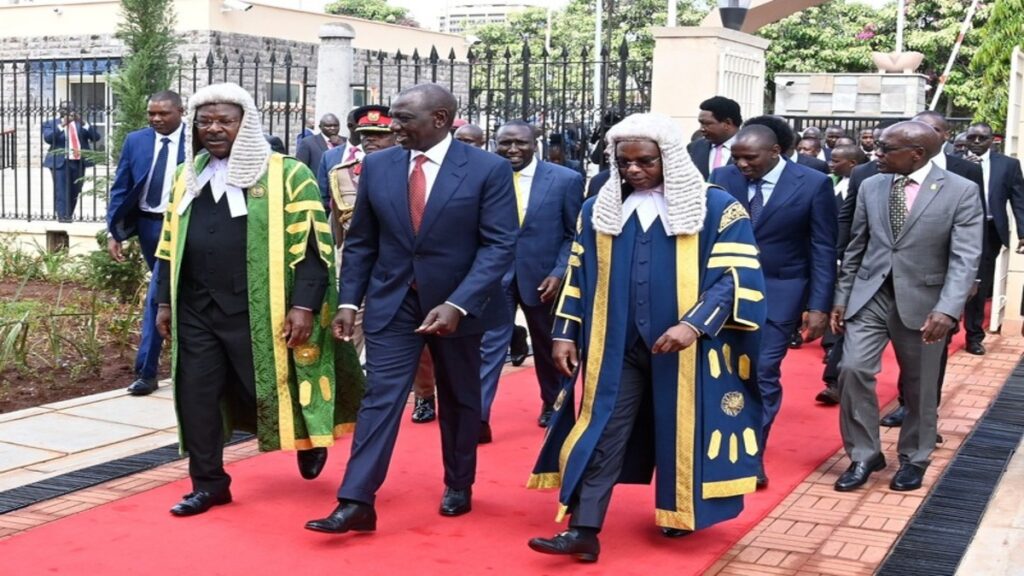President William Ruto has publicly criticized the judiciary and the Director of Public Prosecutions (DPP), Renson Ingonga, for the withdrawal of corruption cases during a recent address. Ruto expressed his frustration over the delays in prosecuting graft cases and the frequent dropping of charges, particularly due to the unavailability of witnesses. He emphasized that such actions undermine the fight against corruption and called for immediate reforms within independent institutions to enhance their effectiveness in tackling graft.

President William Ruto arriving at Parliament buildings being escorted by House Speakers Moses Wetang’ula (National Assembly) and Amason Kingi ( Senate) ahead of the State of the Nation address on November 21, 2024. (PCS)
During his address, Ruto highlighted that the repeated dismissal of high-profile corruption cases by the DPP has raised serious concerns about accountability. He stated, “It cannot be the case that the DPP keeps dropping cases because, somehow, they are unable to produce witnesses.” This criticism follows a series of withdrawals of significant cases involving government officials accused of embezzlement and procurement fraud.
Ruto’s remarks reflect a growing tension between the executive and judicial branches regarding accountability and anti-corruption efforts. He warned that corruption continues to undermine social justice, sustainable development, and national security, directly threatening his Bottom-Up Economic Transformation Agenda aimed at improving economic conditions for all Kenyans.
The President’s frustrations were directed not only at the DPP but also at the judiciary, which he accused of allowing corruption suspects to exploit legal loopholes. Ruto pointed out that these suspects often rush to court for anticipatory bail, which shields them from due process and allows them to interfere with investigations. He remarked, “There is also no reason for corruption cases to drag on in our courts for years when the same courts can determine election petitions within six months.”
In addition to addressing these concerns, Ruto urged lawmakers to expedite the passage of crucial anti-corruption legislation. He expressed disappointment over delays in passing bills that would enhance transparency and accountability in government operations.
The President’s call for reform comes amid increasing public scrutiny over how corruption cases are handled in Kenya. Many citizens have expressed frustration over perceived impunity among public officials involved in graft. Ruto’s administration has promised a vigorous fight against corruption, but critics argue that progress has been slow.
As Ruto continues to push for reforms within independent institutions, he faces significant challenges in balancing the need for judicial independence with public demand for accountability. The ongoing dialogue between the executive and judicial branches will be crucial in shaping Kenya’s approach to combating corruption effectively.
President Ruto’s strong criticism of the judiciary and DPP Ingonga highlights the urgent need for reforms in Kenya’s anti-corruption framework. As he calls for greater accountability and efficiency in handling corruption cases, it remains to be seen how these institutions will respond to his demands. The outcome will significantly impact public trust in governance and the effectiveness of anti-corruption efforts moving forward.



















